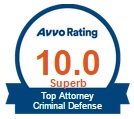Teenagers, however, can often find themselves facing the court system. Whether it’s a spur of the moment decision, or taking the fall for a friend, teenagers often believe that they can avoid the trouble that others experience. These conditions often lead to problems with the legal system.
Luckily, juveniles are generally treated differently than adults in the criminal justice system. This stems from the idea that children under the age of 18 are fundamentally different than adults, not only in their level of responsibility but also their potential for rehabilitation. The juvenile justice system does not look merely to punish minors for their mistakes, but also to provide rehabilitation and reintegration of the minor back into society.
Despite these goals, minors can face very serious consequences depending upon the type of charge. At Ascheman Law, we understand that a child facing potential criminal punishment can be an emotionally trying time for the entire family. We can help walk you through the juvenile justice system and explain your rights, and your child’s rights, to be sure you can both make an informed decision.
Juvenile delinquency cases can range from issues as simple as staying out past curfew to very serious matters like rape or murder. These charges can be classified as felonies, gross misdemeanors, misdemeanors or petty misdemeanors. Such charges are brought by the State against the minor and if severe enough, the State can move to have the minor tried as an adult. To do this, the juvenile must be between the ages of 14 and 17.
Other juvenile crimes include, but are not limited to:
- Assault
- Burglary
- Consumption of alcohol by a minor/Underage Drinking
- Disorderly ConductDrinking and
- Driving (even one drop)
- Drug Possession
- Shoplifting or Theft
- Traffic Tickets
- Vandalism
This is a general overview of the juvenile justice system and just scratches the surface. It is important to contact a qualified attorney who will fight for your child’s rights as soon as possible. Call us today for a free consultation, 612-217-0077.
- Appeals
- Assault
- Boating While Intoxicated
- Burglary
- Child Abduction
- Child Abuse and Neglect
- Child Sexual Abuse
- Controlled Substances
- Controlled Substances
- Criminal Defense
- Criminal Forfeiture
- Criminal Sexual Conduct
- CVO & CVH
- Domestic Abuse
- Drivers License Suspension
- Driving While Intoxicated
- Embezzlement
- Expungement
- False Imprisonment
- Felony Charges
- Forgery
- Fraud
- Gross Misdemeanor
- Hit and Run
- Internet Crimes
- Juvenile Cases
- Kidnapping
- Minor Consumption
- Misdemeanors
- Murder Charges
- No Contact Orders
- Parole & Probation
- Shoplifting
- Stalking
- Theft
- Traffic Tickets
- Trial Practice
- Weapon Charges
- White Collar Crimes
Contact Us
Landon Ascheman
500 Laurel Avenue
St. Paul, Minnesota 55102
MAP IT
Phone: 612-217-0077
Fax: 651-344-0700
Landon@AschemanLaw.com



